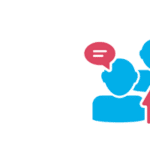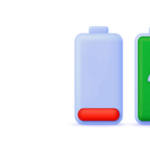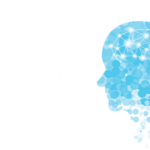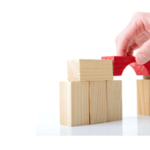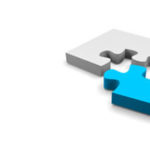Season 2 – Episode 1 – Student Mentorship
This episode discusses student mentorship and Dr. Eren’s role as a faculty and research mentor to both undergraduate and graduate students.
Episode Transcript
Click to expand/collapse
Ed Butch: Welcome to On-Campus with CITI Program. My name is Ed Butch and I will be your new post for season two of the podcast. I’m excited to be here with you all. My first guest is Dr. Metin Eren. Dr. Eren, a Cleveland Saint Ignatius High School graduate is an associate professor of archeology at Kent State University and a research associate at the Cleveland Museum of Natural History. He did his undergraduate degree at Harvard and his master’s and PhD degrees at Southern Methodist University in Dallas, Texas. He also has a second master’s degree in experimental archeology from the University of Exeter and a certificate in ceramic art from Canterbury College. He has published over 200 scholarly papers and three edited books. His research, which focuses on Stone Age archeology and the evolution of technology has been regularly featured in international media, including PBS NOVA, the History Channel, the BBC, the Discovery Channel, NPR, MeatEater among others.
Today we’re going to discuss Dr. Eren’s role as a mentor to both undergraduate and graduate students. Before we get started, I wanted to quickly note that this podcast is for educational purposes only. It is not designed to provide legal advice or legal guidance. You should consult with your organization’s attorneys if you have questions or concerns about the relevant laws and regulations that may be discussed. In addition, the views expressed in this podcast are solely those of our guest. And on that note, welcome to the podcast, Dr. Eren.
Dr. Metin Eren: Hey, how’s it going?
Ed Butch: Not bad, not bad. Thanks for joining and being my very first guest.
Dr. Metin Eren: Definitely. It’s exciting.
Ed Butch: Very good, very good. Well, to let everyone out there know I worked with you a little bit when I was at Kent State as well, especially on student recruitment and things like that, so I was excited to be able to invite you on today. You have a fascinating background and just can you tell us a little bit more about yourself and really your role at Kent State?
Dr. Metin Eren: Yeah, so I actually grew up in northeast Ohio, which is where Kent State is located and so when a position opened up eight years ago, it was a dream come true to come back to northeast Ohio. There’s lots of great places in the world, but for me, northeast Ohio is the greatest place on earth. And so to come back and do archeology, which is my specialty, I couldn’t ask for anything more. But I founded the Kent State Experimental Archeology Lab, and in that lab we actually recreate and then reverse engineer ancient technologies to figure out how they work. And then once we know how these things work, we can build models of how technology evolves over the last 3 million years.
Ed Butch: Fantastic. And I was lucky enough to be able to tour your lab a couple of times, which was great. And can you just provide a little bit more about what you really do in the experimental archeology lab?
Dr. Metin Eren: Yeah, so by recreating all these ancient technologies, we have to have or develop skills that the average person may not have. So for example, I’m considered to be an expert flint knapper and flint knapping is the art and process of making tools out of flakeable stone. So I make knife blades and arrowheads and all sorts of tools scrapers out of stone like chert and obsidian and basalt. And once we make these things, we really put them through hell. We use them to butcher animals, we shoot them. We have a ballistics range in our lab where we shoot replicas of ancient arrows. But all of our students and professors in the lab have their own skills. We have ceramic artists, we have people who do metallurgy like forging, we have woodworkers. Yeah, and just it’s a unique place and a unique lab. There’s not really a lab like it anywhere in the world. So we’re just really fortunate to have this resource here at Kent State.
Ed Butch: And that’s fantastic, and I love that you mentioned obviously the students in your lab as well. And that’s really why I wanted to have you on our On-Campus podcast today is to really talk about your involvement in your mentoring of students. And I know in your time that you’ve mentored a lot of undergraduate and graduate students at Kent, but what does student mentoring really mean to you as a faculty member?
Dr. Metin Eren: Yeah. Mentoring means everything, whether it’s in the classroom or in the laboratory. The chair of our department, Mary Ann Raghanti says to the faculty regularly that we are here for the students. And all of the faculty in Kent State anthropology really take that to heart. We would not exist if it were not for students. And so it’s something that all faculty need to take very seriously. Students not only should be taken care of in the classroom, but we need to get students involved in research, in activities in the field. Really anything a professor does, I think we need to involve students at the academic level. It’s vitally important. I’d like to say too, that experimental archeology is cool because we can really utilize student skills that otherwise might not be appreciated in other disciplines.
Ed Butch: Yeah.
Dr. Metin Eren: So it takes years to become a great craftsperson in wood or to become a ceramic artist or even a musician. We can’t teach that to undergraduates. They have to have already had those skills. But in our lab, we actually look for people that have those sorts of specialized skills because we need people who can make spear shafts. We need people who can make pots. We need people who can make arrowheads. We can teach them the science in a year or two when they’re students, but we can’t teach them that 10 or 15 years of craftsperson skill.
So we try to turn recruiting of students on its head and then really illustrate to students that these skills that you may not perceive as being academic or valuable academically actually are. For example, we had a tattoo artist as one of our students, and he had no idea that people in the past would actually make needles out of stone. And so we did some experiments where I would make the stone needles and then he would use them to tattoo things. And really bringing modern skills and showing how they can inform on the past has opened a lot of our students’ eyes into how all aspects of knowledge are really interconnected.
Ed Butch: Definitely. That’s wonderful. I know in my time at Kent, I always really appreciated the anthropology department and what you really did for and with your students as well. I want to take a little bit of a step back and locate your career as well in terms of you’ve been, as our listeners heard in the intro, all over the world. And so how has mentoring really played a role in your career?
Dr. Metin Eren: Yeah, I’ve been really lucky because I’ve done field work and experiments in North America, in Asia, Europe, Africa, all over the place. And that’s only possible because of the mentoring I got. I actually started archeology when I was 16 years old at the Cleveland Museum of Natural History, and it was Dr. Brian Redmond, who was the curator there who when I went to the museum, he looked at this kid skeptically, the 16-year-old high school student. But he took me under his wing and before I even got to university, I was directing graduate students at excavations, which I’m sure they loved to have a 17…
Ed Butch: I’m sure.
Dr. Metin Eren: I don’t know what to do but… So that got me going, and that shows the power of amazing mentoring to take a high school student and take that person under their wing. So I knew going into college I was going to be an archeologist. And then my undergraduate advisor, the late Ofer Bar-Yosef at Harvard gave me an office as an undergraduate in his lab.
Ed Butch: Wow.
Dr. Metin Eren: So that opened up all sorts of doors and I was able to publish because of Ofer as an undergraduate in top peer review journals. And then my PhD advisor, David Meltzer at Southern Methodist University, provided all sorts of opportunities for me and taught me all sorts of things. And so what’s amazing too, I just want to say is that each of those people, and there’s other mentors I haven’t had a chance to mention, but they all have their own styles and they provide different skills and different experiences. So I think the most important thing for me was understanding and having a variety and diversity of mentors because one mentor can’t provide everything. It’s just impossible. It’s also unfair to that mentor to demand that. So the fact that I was very fortunate to have a variety of mentors in a variety of places with strengths and weaknesses just influenced me and my own style. And probably your listeners who are faculty members have that experience too, and then they take bits and pieces from their own mentors and develop their own style. Yeah, it’s a circle.
Ed Butch: Yeah, definitely. I love that, the variety and looking at the strengths and weaknesses because though we don’t always like to focus on our weaknesses, we all have them, right?
Dr. Metin Eren: Oh, yeah. No, definitely.
Ed Butch: It’s good to look at.
Dr. Metin Eren: Well, I think the thing too is none of my mentors ever claimed to be the end-all-be-all, and all of them always were working on their weaknesses, so we can’t be good at everything. But one thing I learned from all of them was that even though we can’t be good at everything, doesn’t mean we don’t try our best and work on our weaknesses because our weaknesses don’t have to be as weak as they would be otherwise. So yeah, so mentoring is huge, and I think any faculty member out there will tell you that it played a huge influence in their own lives.
Ed Butch: For sure. Definitely. Now, I know throughout this and throughout your time at Kent, you’ve worked with multiple students who have gone on to some prestigious graduate programs or received postgraduate rewards. Can you just tell us about a student or two and the paths that they took?
Dr. Metin Eren: Yeah, no, definitely. We’ve had a huge variety of students and we’ve been so lucky to interact with all these great people. So for example, we had a student from Parma, Ohio named Anna Mika, and I remember she took my class on the very first Stone Age, Americans 13,000 years ago, and the student really was real quiet, didn’t say anything. She was an undergraduate, so when they’re quiet, you’re like, who is this person? And Then but by the end of the semester, she had outperformed every student by 10%, right? She got the highest grade in the class.
I was like, “Oh my goodness, who is this person?” And so I talked to her, and as I talked to her, I realized this was a brilliant human and invited her into my own lab and got her working on various projects. And just like me, we got her publishing as an undergraduate in the peer reviewed literature, and she published in journals like Plos One, which is a major international journal, and this was all as an undergraduate. She contributed to several other papers that we did in really meaningful and substantive ways. So by the time she finished as an undergraduate, we here at anthropology thought, well, there’s more that she could benefit from. So she became a master’s student here at Kent State, and she published even more. Her master’s thesis was published. I think she had 10 or 12 papers by the time she finished her master’s. Right?
Ed Butch: That’s amazing.
Dr. Metin Eren: Yeah. And then she applied to the University of Cambridge in England. The Cambridge not only was accepted, but was awarded the Harding Fellowship, which basically covered all of her tuition, all of her research, everything for the entire PhD. And so it’s hard to get more successful than that and she’s currently working on her PhD right now at Cambridge. And so that’s just one example. I mentioned our tattoo artist, that’s a guy named Dusty Norris. One other example, I could go on and on because we’ve had people go all over the world from Kent State to different programs, but we had a student named Heather Smith, and she was a mature student, a non-traditional student, and she came in as a master’s student. And in a previous life, she was actually a professional violinist for an orchestra.
Ed Butch: Wow.
Dr. Metin Eren: Yeah. Amazing. But she always had interests in archeology. And so we looked at her record and it was very good. And even though she didn’t have a lot of archeological research, we thought, well, look, she’s a professional musician. She’s non-traditional. She knows how to work and focus and all this. So we accepted her into our master’s program, and her thesis ended up being brilliant. It was featured on PBS NewsHour very briefly, and it was also published. What we did was I would make stone tools and she would have her violin and actually pitch the sound or the notes of the stone toolmaking.
And she was able to pick out As or Es or Ds and all this stuff and so it was the first auditory or musical assessment of stone toolmaking, which had implications for the evolution of hearing and all sorts of stuff. And she went on to really get interested in cognition and how people hear things, and now is a PhD student at Kent State focusing on the brain. So yeah, it’s pretty incredible. I could go on and on talking about our students and their successes. We’ve just been very fortunate to work with just a variety of tremendous human beings.
Ed Butch: Definitely. It’s fascinating. I feel like every time that I speak with you, I’m like, I’m going to apply to their program.
Dr. Metin Eren: Well, it’s pretty fun. The idea of being able to recreate ancient technologies and reverse engineer them to figure out how they work, but we do traditional archeology as well. We do digs and excavations and things like that, which is also useful to get people doing outdoor field science. That opens up a lot of students to understanding, look, science isn’t just done in a laboratory. It’s done outside. And some students love that, some don’t. They learn very quickly that archeological excavation is fun for 10 minutes, and then after days of back-breaking work, it’s less fun, but people figure out what they like.
Ed Butch: Definitely. Definitely. And I think that goes as well, talking about your research lab or outside of the lab and things like that, obviously a lot of your mentoring as you’ve discussed, really focuses in on the research aspect. And for faculty and staff that are out there listening, how do you support students in really that initiation of research and also conducting the research?
Dr. Metin Eren: Yeah, so I think for me, I’ve learned that every student is different and unique. And that may sound trite, but it’s an important thing to acknowledge explicitly. And so you can’t treat students in any cookie cutter manner. You have to tailor your mentoring to each student. You may have an overall style, but in my experience, you still have to alter and modify that style per person. I suppose the way we get them involved in research as well has to do with my view of what the university is. Which is I see universities as factories of knowledge, and it is the job of the university to produce the output of knowledge.
And you do that through research, and perhaps I might be considered the floor manager of a laboratory in this factory of knowledge, and the students are apprentices in this factory or they’re on the assembly line and they’re learning how the factory works. So we should never underestimate students’ ability to create or produce or generate data or collect data. Get them involved doing the groundwork of what research is, which is collecting that data, and they learn so quickly. And you hear about how the young mind is often a fertile mind. And once they start thinking about how data is collected in these factories of knowledge, it is stunning how quickly they start having innovative ideas on their own.
And then what we do is we will, let’s say, a student is doing a research project, they’ve conducted an experiment that we’ve told them to do or collected data that we’ve asked them to collect. We’ll write the paper for them, have them look at it and see, oh, the data I just collected has now been transformed into this output. Well, just that single process of them collecting the data and seeing how it turns out, and they see their name on it as a co-author the next time around, they’re actually the ones who are starting to write the paper. Now, we’ll edit it heavily and all that stuff, but I think we should never underestimate how quickly students can just grasp the scientific process and pretty soon they’re doing it on their own.
And that’s how it works and this is why I think an apprenticeship and this factory of knowledge approach is really important because once they know how to do research, they carry that with them for the rest of their lives. And that’s important even if they don’t go into science, research is done in law, it’s done in business, it’s done in all aspects of life. And it also opens doors for them we’ve found, because if you have undergraduates that are actively and substantively contributing to research and being co-authors, if not first authors on papers, when they apply for jobs or graduate schools or whatever, and their potential employer sees they have been published, it’s hard to overestimate the impact that seeing that does for their future prospects. So for us, getting students involved in research, in the factory of knowledge is vital.
Ed Butch: Yeah. I think that’s a great way to put it, really. For sure. And we all know that when learning a new process or something like that, there’s obviously going to be some challenges, some setbacks that arise. So how do you work with students when those types of things come up?
Dr. Metin Eren: Yeah. Well, I think for us it’s the philosophy that there is no scientific study that is ever perfect anywhere. And this is, I think something broader that in my opinion, all scientists need to adopt. Every paper I do or that our students do will be improved upon in the future. It’s going to be more accurate, better technologies in the future, maybe different results. So we emphasize to our students that this isn’t going to be perfect, you just need to do your best. And describing to them the difference between perfection and doing your best can be different. It can be a challenge.
Ed Butch: For sure.
Dr. Metin Eren: But once they grasp that, their confidence, I find, goes through the roof because they realize that you can publish something that is going to be improved upon. A better analogy would be that they’re not trying to score a touchdown. Every scientific paper that my students publish or that we publish is just moving the ball a couple yards down the field. And so once they realize that they don’t have to score a touchdown, they can just move the ball a couple yards down the field, it becomes very easy for them to publish and do research.
Ed Butch: For sure. Yeah. It’s interesting because I found my time in academic advising and working with students and things like that, that a lot of times the students themselves or the faculty are both sometimes forget that they are pursuing coursework while also doing research. So time management is a huge issue. So do you have any tips for students or for faculty and staff about balancing research and coursework?
Dr. Metin Eren: Yeah, so I think, well, first, let me just say I hesitate to give advice to other faculty, right? Because there’s all sorts of different fields out there and different styles of mentorship, all that stuff. But for us, what we’ve always emphasized is that coursework has to come first. In fact, we have requirements, if you’re going to be a student member of the Kent State Experimental Archeology Lab, you have to have a certain GPA because we found some very bright students were coming to the lab and doing lots of lab work, but it was at the cost of their coursework.
And if a student fails out, then what’s the point of doing the lab work to begin with? And that was early on in the laboratory history. So we established GPA requirements and a few other requirements to make sure that students are going to class because that’s number one. So you have to do well in coursework to be a lab member. Now, once you do that, it’s important for students to realize that time is not an infinite resource and you have to make choices. And so I think it’s harder for students to make choices about their time today through no fault of their own. Because they have access to Netflix and social media, and it’s so easy to be distracted by those things. YouTube, all sorts of things. When I was an undergraduate 20 years ago, oh my goodness.
Ed Butch: Back in the day, right?
Dr. Metin Eren: Yeah. Even having my own student email account was interesting in the early 2000s, but we didn’t have as many distractions, and that’s just the way it was. And so it was much easier not to be distracted. So we always emphasize to our students that, look, you have choices and the choices you make now do influence your future. So if you choose to watch or binge-watch a show on Netflix, that means that is time that is not dedicated to research. And if you choose to do that, that is fine, but you also need to understand that there are students elsewhere that are making a different choice, and they’re not binge-watching that show.
And they are doing their research in their spare time. So you have to think, well, if I’m going to be going up against a student in applying for PhD programs or jobs or something like that, I shouldn’t be upset if they get it because they made a choice that I didn’t. And so that’s the way we try to frame it to our students. We never say, “Oh, you have to be in the lab, or you have to do research”, because work-life balance is also very important. But I think when you think about work-life balance, you also have to think about the work part and not just the balance part.
Ed Butch: Yes.
Dr. Metin Eren: The only way you have that work-life balance is if you’re doing both.
Ed Butch: You have both things that are happening, right?
Dr. Metin Eren: Yeah. Both things are happening, it can’t just be just balance. So yeah, that’s how we try to portray it to our students in the lab.
Ed Butch: One of the last things I wanted to ask for any students, undergraduate, graduate that might be listening as well, do you have any specific resources or tools or anything like that that you often recommend to your students to enhance their research skills or time management or anything like that?
Dr. Metin Eren: Yeah, so I think the thing I always emphasize to our students here is that you will never have as much time in your life as you do right now to read. And by “read” I mean books. And so it may seem obvious or simple, but the library, right? And this goes again with making choices. Do I want to binge-watch that show or do I actually do some reading? I find more and more that reading just for pleasure and for knowledge, isn’t emphasized as much, which is a shame because reading is where you get ideas for tests and where you make connections and all sorts of things like that for science. So really the library is the greatest resource. Spend time when you’re most awake and most alert in the library. For me, when I read, I always read in the mornings, I’ll find by the afternoon, I can’t focus, I can’t absorb knowledge as much.
So I get up early in the morning and I do all my reading then, usually an hour or two when I can before my son wakes up for the day. But you may have another time, maybe you like reading at night, maybe in the middle of the afternoon when you’re eating lunch or something, but reading has to be done because you just don’t have as much time for it later in life. Also, too, I would emphasize that when you read, when you’re a student, you can read scientific journal articles, but I would actually advise students to read books. Books on science, popular books on science and this is for two reasons. One, the scientific literature, and really the academic literature in general is very dynamic. It changes, so you try to read an article, it may be different the next week, a new finding is made, but if you read books, you can build this lattice of knowledge because the book has summarized things for you.
And the other great thing about books is that’s often where assumptions are made. So if you’re looking for a question to test, it’s always better to find them in books because books are usually rife with assumptions that can be tested. And so we emphasize that to our students as well when they’re trying to come up with ideas for research, just read some books and you’ll identify assumptions that scientists made that you can now test in the laboratory.
Ed Butch: That’s great. And for me personally, I’m 20 years or so post undergrad as well, and I’m trying to get better at that and reading at night instead of binge-watching the shows, but it’s making those habits to try to do.
Dr. Metin Eren: Yeah, no, for sure. And it’s tough, right? Because I think everyone is so tired from COVID and society and politics and all of us feel it. And so I will binge-watch shows from time to time. I’m not saying that shouldn’t occur.
Ed Butch: Sure. Oh, right.
Dr. Metin Eren: But I think the thing is that we need to emphasize to our students that we have choices and we are in control of what we do. And sometimes rather than choose this one option, you should choose this other option just because there are people out there who are making the opposite decision and you will be in competition with them. Now, if that doesn’t bother you, let’s say you’re not that keen on getting into a PhD program, that’s fine, that’s cool. And we don’t emphasize it any further, but for people who have ambitions to get places, it’s important that they understand the choices that they make have consequences.
Ed Butch: Definitely. Well, thank you for our conversation today. I really just wanted to close with asking, are there any final thoughts that you have for our audience today?
Dr. Metin Eren: Just that there are a variety and diversity of mentoring styles. There are a variety and diversity of students. And so I think all of us need to be flexible in how we mentor and who we mentor. And it’s sometimes best if you can’t mentor someone to be open to passing that student on to someone who will fit better. And that’s happened to me before where for whatever reason, the student wasn’t as interested in the research I do as they thought they were. So you get to know the student more and you’re like, “Oh, you’re actually interested in this other subject. Well, I know so-and-so at the university who can do that.” So we also can’t be greedy with our mentorship, right?
Ed Butch: Yes.
Dr. Metin Eren: Because again, as my chair, Mary Ann Raghanti, says, “We are here for the students, and if the best mentoring we can do is to pass them on to someone who can mentor them better, then that’s what we should do.”
Ed Butch: Wise words, for sure. So thank you. Thank you once again, Dr. Eren and I do invite all of our listeners to visit citiprogram.org to learn more about our courses and webinars on research, ethics, compliance, and higher education. And I do look forward to bringing you more expert guests to discuss what’s happening On Campus. Thanks again, and thank you.
How to Listen and Subscribe to the Podcast
You can find On Campus with CITI Program available from several of the most popular podcast services. Subscribe on your favorite platform to receive updates when episodes are newly released. You can also subscribe to this podcast, by pasting “https://feeds.buzzsprout.com/1896915.rss” into your your podcast apps.
Recent Episodes
- Season 1 Episode 58: STIs on College Campuses
- Season 1 Episode 57: COVID-19 and the 2023 Flu Season
- Season 1 Episode 56: First Generation Students in Higher Ed
- Season 1 Episode 55: Generative AI in Higher Education
Meet the Guest
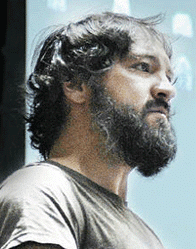
Metin Eren, PhD – Kent State University
Dr. Metin I. Eren is an Associate Professor at Kent State University. His research, which focuses on Stone Age archaeology and the evolution of technology, has been regularly featured in international media, including PBS NOVA, the History Channel, the BBC, the Discovery Channel, NPR, MeatEater, among many others.
Meet the Host
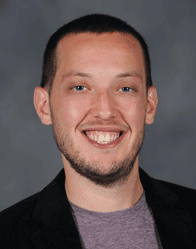
Ed Butch, Host, On Campus Podcast – CITI Program
Ed Butch is the host of the CITI Program’s higher education podcast and the Assistant Director of Content and Education at CITI Program. He focuses on developing content related to higher education policy, compliance, research, and student affairs.




